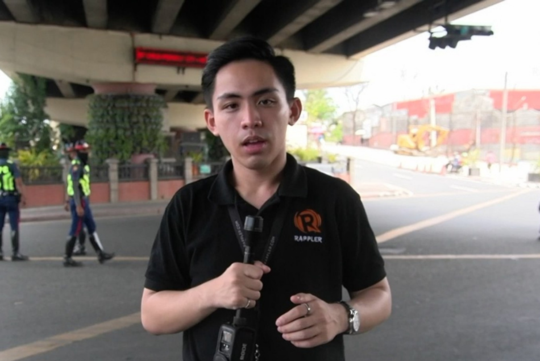On September 27, Michael Aglipay, the chairperson of the house committee on good government and public accountability, abruptly removed Rappler journalist Rambo Talabong from a media coordination channel. Talabong had recently published a story about Aglipay, questioning whether expired Pharmally face shields were responsible for casualties given a surge in Covid-19 infections.
Aglipay justified his actions, stating that the Viber channel was a ‘personal group’ and not an official media channel. However, a NUJP representative told the IFJ that the group chat was intended for journalists covering the committee and the probe on the Philippine government’s pandemic response spending. Aglipay also claimed Talabong’s reportage was “one-sided” and did not reference authorities’ remarks that the shelf life of the face shields was 36 months. Rappler stated that this information was immaterial in the context of the story.
NUJP expressed concern that access to information in the public’s interest appeared to rest on the government’s notion of good journalism. It also follows widespread criticism that the Philippines government has used pandemic controls as a means of curbing dissent.
In a separate incident, on September 23, independent news organisations Altermidya and Bulatlat issued a joint statement stating both organisations experienced cyber-attacks, allegedly coordinated by the Philippine army. The statement reported that the Computer Emergency Response Team (CERT-PH), under the Department of Information and Communications Technology (DOCT), found the attacks originated from an IP address belonging to the Philippine military. Both said the government is yet to reveal the military agency behind the attack despite repeated requests.
“We condemn the Philippine Army for carrying out cyber-crimes against independent media outfits. We take offence at the duplicity they have shown regarding this incident – publicly professing respect for press freedom but launching vicious digital attacks, and never cooperating with other government agencies,” said the joint statement.
The NUJP said: “The NUJP stands firm that no journalist should be singled out and be barred from covering government offices and personalities. We reiterate our call to defend press freedom and stop the attacks against journalists covering the hearings that uncover the anomalies in the government's pandemic spending.”
The IFJ said: “Arbitrarily restricting access to sources restricts vital reporting during a period of uncertainty for the citizens of the Philippines. The IFJ also strongly condemns cyber-attacks against independent news outlets and calls for a full investigation. ”

